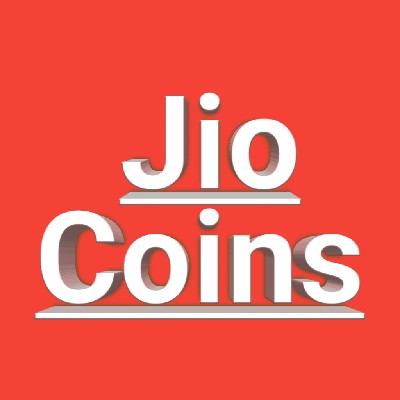![[Fake] USD One price](https://img.bgstatic.com/multiLang/coinPriceLogo/vellum-usd.png)
[Fake] USD One priceUSD1
PHP
Hindi naka-list
₱57PHP
+0.05%1D
The [Fake] USD One (USD1) price in Philippine Peso is ₱57 PHP as of 01:38 (UTC) today.
Kinukuha ang data mula sa mga third-party na provider. Ang pahinang ito at ang impormasyong ibinigay ay hindi nag-eendorso ng anumang partikular na cryptocurrency. Gustong i-trade ang mga nakalistang barya? Click here
Mag-sign upLast updated as of 2025-09-20 01:38:11(UTC+0)
USD1 sa PHP converter
USD1
PHP
1 USD1 = 57 PHP. Ang kasalukuyang presyo ng pag-convert ng 1 [Fake] USD One (USD1) sa PHP ay 57. Ang rate ay para sa sanggunian lamang. Ngayon lang na-update.
Nag-aalok ang Bitget ng pinakamababang bayad sa transaksyon sa lahat ng pangunahing trading platforms. Kung mas mataas ang iyong VIP level, mas paborable ang mga rate.
[Fake] USD One market Info
Price performance (24h)
24h
24h low ₱56.9724h high ₱57.13
All-time high:
₱57.21
Price change (24h):
+0.05%
Price change (7D):
-0.01%
Price change (1Y):
+0.24%
Market ranking:
#5124
Market cap:
--
Ganap na diluted market cap:
--
Volume (24h):
₱700,729.08
Umiikot na Supply:
-- USD1
Max supply:
--
Total supply:
100.00B USD1
Circulation rate:
0%
Live [Fake] USD One price today in PHP
Ang live [Fake] USD One presyo ngayon ay ₱57 PHP, na may kasalukuyang market cap na ₱0.00. Ang [Fake] USD One tumaas ang presyo ng 0.05% sa huling 24 na oras, at ang 24 na oras na dami ng kalakalan ay ₱700,729.08. Ang USD1/PHP ([Fake] USD One sa PHP) ang rate ng conversion ay ina-update sa real time.
How much is 1 [Fake] USD One worth in Philippine Peso?
As of now, the [Fake] USD One (USD1) price in Philippine Peso is ₱57 PHP. You can buy 1 USD1 for ₱57, or 0.1755 USD1 for ₱10 now. In the past 24 hours, the highest USD1 to PHP price was ₱57.13 PHP, and the lowest USD1 to PHP price was ₱56.97 PHP.
Sa palagay mo ba ay tataas o bababa ang presyo ng [Fake] USD One ngayon?
Total votes:
Rise
0
Fall
0
Ina-update ang data ng pagboto tuwing 24 na oras. Sinasalamin nito ang mga hula ng komunidad sa takbo ng presyo ni [Fake] USD One at hindi dapat ituring na investment advice.
lNgayon na alam mo na ang presyo ng [Fake] USD One ngayon, narito ang iba pang maaari mong tuklasin:
Paano bumili [Fake] USD One (USD1)?Paano magbenta [Fake] USD One (USD1)?Ano ang [Fake] USD One (USD1)Ano kaya ang nangyari kung bumili ka [Fake] USD One (USD1)?Ano ang price prediction ng [Fake] USD One (USD1) para sa taong ito, 2030, at 2050?Saan ko maida-download ang historical price data ng [Fake] USD One (USD1)?Ano ang mga presyo ng mga katulad na cryptocurrencies ngayon?Gustong makakuha ng cryptocurrencies agad?
Bumili ng cryptocurrencies nang direkta gamit ang isang credit card.Magtrade ng iba't ibang cryptocurrencies sa spot platform para sa arbitrage.Kasama sa sumusunod na impormasyon:[Fake] USD One hula sa presyo, [Fake] USD One pagpapakilala ng proyekto, kasaysayan ng pag-unlad, at iba pa. Patuloy na magbasa upang magkaroon ng mas malalim na pag-unawa sa[Fake] USD One.
[Fake] USD One price prediction
Kailan magandang oras para bumili ng USD1? Dapat ba akong bumili o magbenta ng USD1 ngayon?
Kapag nagpapasya kung buy o mag sell ng USD1, kailangan mo munang isaalang-alang ang iyong sariling diskarte sa pag-trading. Magiiba din ang aktibidad ng pangangalakal ng mga long-term traders at short-term traders. Ang Bitget USD1 teknikal na pagsusuri ay maaaring magbigay sa iyo ng sanggunian para sa trading.
Ayon sa USD1 4 na teknikal na pagsusuri, ang signal ng kalakalan ay Sell.
Ayon sa USD1 1d teknikal na pagsusuri, ang signal ng kalakalan ay Sell.
Ayon sa USD1 1w teknikal na pagsusuri, ang signal ng kalakalan ay Sell.
Bitget Insights

TheNewsCrypto
17h
Here are the trending #Cryptos of the day!✨
☑️APX ( $APX ) - @APX_Finance
☑️World Liberty Financial USD ( #USD1 ) - @worldlibertyfi
☑️
USD10.00%

JioCoins
1d
$WLFI Smart money sees it first: WLFI’s bottom is lifting 📈
On Sept 16, the $PUMP team bought back 13,823.23 SOL ($3.29M) worth of $PUMP.
$WLFI should adopt a similar buyback model — imagine part of $USD1 profits fueling $WLFI repurchase. That would drive WLFI’s valuation 🚀
#WLFI PUMP #Buyback
WLFI-1.92%
PUMP-1.80%

Daxxx2
2d
TRUMP JUST DROPPED $3.5T INTO THE MARKET — Crypto Will Never Be the Same!
Trump just SIGNED the GENIUS Act
It will inject $3.5 TRILLIONS into the market
But the real goal is to boost $USD1 and seize control
Here’s what it means for crypto and how to profit👇
Trump, Hyperliquid, even obscure DeFi teams
This isn’t just a narrative shift - it’s a change in power dynamics
Who controls the money layer - controls crypto itself.
Donald Trump is the first political figure to go all-in on this
His family backed USD1 and helped launch World Liberty Financial
Unlike Tether or Circle, they don’t ask for permission to mint
They act like they already won the game.
It’s not just about money - it’s about leverage
With their own stablecoin, they can bypass regulators and banks
They don’t need to block competitors - they just make them irrelevant
The goal is dominance, not coexistence
Here’s how stablecoins actually work behind the scenes
You deposit $100 - the issuer keeps the dollars and gives you tokens
They invest your real money into short-term assets like Treasuries
The token holds its peg, and they earn 4-6% risk-free on billions.
This model turned Tether into a $176B monster with zero marketing
They print when liquidity flows in, burn when it flows out
It’s simple - and extremely profitable if you control the flow
Trump wants that flow to go through him, not Wall Street.
USD1 is already printing aggressively - over 2.6B since March
Most of it lands on BSC, where token sales and retail activity thrive
They don’t need exchanges or banks to approve anything
They just need traction and community adoption - which is happening fast
The genius of this approach: they don’t need you to believe in USD1
You’ll still end up using it if the tokens you buy are priced in it
It becomes the default unit for sales, raises, and rewards
Adoption by proxy is more effective than any marketing campaign
Stablecoins are no longer just backend infrastructure
They are political weapons, capital machines, and narrative anchors
And the next cycle might belong to those who mint, not those who trade
Ignore this meta - and you’ll miss the layer that prints the market
BOOST-0.17%
USD10.00%

Gulshan-E-Wafa
2d
From shadow dollars to mainstream liquidity - stablecoins have ridden every Fed cycle like a hidden!
A stablecoin is a type of cryptocurrency designed to maintain a stable value by being pegged to a specific asset or basket of assets, such as a fiat currency (e.g, the US dollar), commodities, or other cryptocurrencies.
This pegging mechanism aims to minimize volatility, making stablecoins more suitable for everyday transactions, remittances, and as a store of value compared to more volatile cryptocurrencies like Bitcoin.
$USDC $USDS $USD1 $TUSD $DAI
There are several types: fiat-collateralized (backed by reserves of fiat currency), crypto-collateralized (backed by other cryptocurrencies), algorithmic (maintained through smart contracts and incentives without full reserves), and commodity-backed (pegged to assets like gold).
Popular examples include Tether (USDT) and USD Coin (USDC).
Complete History of Stablecoins Year by Year Till Today.
The history of stablecoins begins shortly after Bitcoin's launch, evolving from early experiments to a multi-billion-dollar market.
Below is a year-by-year timeline based on key milestones, launches, and developments up to September2025:
2014: The concept emerges with the launch of BtUSD on the BitSres blockchain in July, the world's first stablecoin, pegged to the USD via crypto collateral.
In September, Nu-Bits (USNBT) is introduced on the Peercoin network as another early attempt at stability.
Tether (originally Realcoin) launches in October as the first fiat-backed stablecoin, initially on the Omni Layer protocol over Bitcoin, backed 1:1 by USD reserves.
2015: Tether gains traction for trading on exchanges, but the market remains niche.
Early discussions on stability mechanisms highlight risks like depegging.
2016: Stablecoins see limited adoption amid broader crypto growth.
Tether expands its use cases in trading pairs.
2017: The crypto boom increases demand for stable assets.
Tether's market cap grows significantly, but controversies arise over reserve transparency.
2018: Major launches include USD Coin (USDC) by Circle and Cinbase in September, backed by USD reserves and audited for transparency.
True-USD (TUSD) and Paxos- Standard (PAX) also debut, emphasizing regulatory compliance.
Ge-mini Dollar (GUSD) launches as the first regulated stablecoin.
Market cap surpasses $2 billion amid the crypto winter.
2019: Dai (DAI) from MakerDAO gains prominence as a decentralized, crypto-collateralized stablecoin on Ethereum.
B USD (B-USD) launches in partnership with Paxos.
Total market cap reaches around $5 billion.
Regulatory scrutiny increases, with concerns over systemic risks.
2020: Explosive growth during the DeFi boom; stablecoins become essential for liquidity in decentralized finance.
USDT and USDC dominate, with market cap exceeding $20 billion by year-end.
Algorithmic stablecoins like Ample-forth experiment with supply adjustments.
2021: Stablecoin market cap surges to over $100 billion.
Ethena USDe (USDe) prototypes emerge.
Regulatory proposals in the US and EU focus on oversight.
Tether settles with regulators over reserve claims.
2022: The TerraUSD (UST) collapse in May causes a major depegging event, wiping out $40 billion and shaking confidence in algorithmic models.
Despite this, fiat-backed stablecoins like USDC grow.
Market cap dips but recovers to around $130 billion.
2023: Focus on regulation; the EU's MiCA framework is drafted for stablecoins.
USDC briefly depegs due to Silicon Valley Bank exposure but recovers.
Py-Pal launches PYUSD.
Market cap stabilizes around $120-140 billion.
Depegging events highlight risks in governance and reserves.
2024: Stablecoin adoption accelerates with institutional involvement.
Tether reports record profits ($13 billion).
BlackRock and other firms tokenize assets backing stablecoins.
Market cap climbs to $180 billion. Solana sees rapid stablecoin growth due to low fees.
2025 (up to September 13): Stablecoin market cap reaches approximately $250-275 billion, driven by cross-border payments and DeFi.
Ethereum and Solana lead growth, with $17 billion and over $1 billion added respectively.
Regulatory advancements like the US GENIUS Act and EU MiCA implementation boost confidence.
Projections suggest growth to $3 trillion in coming years.
New entrants like bank-issued stablecoins emerge, with focus on tokenized cash.
This timeline reflects key events; the sector has seen over 334 peg attempts historically, with varying success.
Which Chain Has How Much Share in Stablecoins (e.g., Ethereum, Solana).
As of mid-2025, the total stablecoin supply is around $250-275 billion.
Ethereum dominates due to its established DeFi ecosystem, security, and liquidity.
Here's a breakdown of market shares by major blockchains:
Ethereum: Approximately 65.4% of total stablecoin supply (~$165-180 billion).
It hosts major stablecoins like USDT, USDC, and DAI, benefiting from high TVL (total value locked) and institutional adoption.
Recent growth: +$17 billion in supply.
Solana: Around 5.4% (~$13-15 billion), up from 1.6% in prior years.
Known for high-speed transactions and low fees, it has seen over $1 billion in growth, primarily in USDT and USDC.
It's the second-fastest growing chain for stablecoins.
Other Chains: Base (Ethereum Layer 2): 5.6% (~$14 billion);
Arbitrum: ~3-4%;
BNB Chain: ~3%;
Tron: Significant for USDT (~20-25% of USDT supply, but overall chain share ~10-15%);
Polygon, Optimism, and Avalanche: Smaller shares (1-2% each).
Solana's ratio to Ethereum in circulating supply is growing but still trails significantly.
Ethereum's lead is due to its maturity, while Solana gains from efficiency.
Stablecoin Role in Building Economies in the Future
Stablecoins are poised to play a transformative role in future economies, particularly in emerging markets and global finance:
Cross-Border Payments and Remittances: They enable faster, cheaper international transfers (e.g., near-instant settlements at low costs), reducing reliance on traditional systems like SWIFT.
This could boost economic inclusion in regions with high remittance fees.
Wealth Preservation and Financial Access: In volatile economies, they act as a hedge against inflation or currency devaluation, providing unbanked populations access to stable assets via mobile wallets.
Tokenized Assets and DeFi: As "tokenized cash," they facilitate efficient capital markets, enabling 24/7 trading, programmable money, and integration with CBDCs (central bank digital currencies).
Projections suggest they could minimize adverse economic outcomes by enhancing monetary resilience.
Broader Economic Integration: They could serve subsidiary roles in next-gen monetary systems, supporting merchant adoption and reducing payment frictions, potentially reaching $3 trillion in market cap.
Risks include regulatory gaps and illicit use, but with proper oversight, they could democratize finance.
Stablecoin Impact in the Crypto Industry.
Stablecoins have profoundly shaped the crypto industry:
Liquidity and Trading Backbone:
They serve as entry/exit ramps for crypto trading, enabling stable pairs without fiat conversions.
Over 90% of crypto trades involve stablecoins, reducing volatility exposure.
DeFi Growth: Essential for lending, borrowing, and yield farming; they've driven DeFi TVL to trillions by providing stable collateral.
Payments Transformation: Enabling instant, low-cost transactions, they've processed billions in volume, challenging traditional networks like credit cards.
Risks and Shocks: Depeggings (e.g., Terra) have caused market disruptions, fire sales, and contagion, highlighting needs for better regulation.
Overall, they've bridged tradfi and crypto, with adoption growing 28% YoY.
Which Giant Corporations Have Major Stakes in Stablecoins and What Chains They Use.
Several corporations hold significant stakes, often through issuance, backing, or investment:
BlackRock: Manages the $2.9 billion BUIDL tokenized money market fund, used as collateral for stablecoins and derivatives.
Primarily on Ethereum, but expanded to Solana in 2025 via partnerships like Securitize.
It's backing new stablecoins like those from Frax Finance.
BlackRock views stablecoins as here to stay, with $250 billion adoption since 2020.
Tether Holdings: Issues USDT ($120+ billion market cap), the largest stablecoin.
Primarily on Tron and Ethereum; 2024 profits reached $13 billion, rivaling BlackRock's.
Circle: Issues USDC (~$35 billion), on Ethereum, Solana, and others. Focuses on compliance.
Paxos: Issues B-USD and P-AX, on Ethereum; partners with Bnce.
JPMorgan: Issues JPM Coin (stablecoin-like), on its Onyx blockchain (Ethereum-based).
PayPal: Issues PY-
MAJOR-0.86%
BNB+0.09%
USD1 sa PHP converter
USD1
PHP
1 USD1 = 57 PHP. Ang kasalukuyang presyo ng pag-convert ng 1 [Fake] USD One (USD1) sa PHP ay 57. Ang rate ay para sa sanggunian lamang. Ngayon lang na-update.
Nag-aalok ang Bitget ng pinakamababang bayad sa transaksyon sa lahat ng pangunahing trading platforms. Kung mas mataas ang iyong VIP level, mas paborable ang mga rate.
USD1 mga mapagkukunan
[Fake] USD One na mga rating
4.6
Mga tag:
Mga kontrata:
0x056a...9cceee7(Ethereum)
Ano ang maaari mong gawin sa mga cryptos tulad ng [Fake] USD One (USD1)?
Madaling magdeposito at mabilis na mag-withdrawBumili upang lumago, magbenta upang kumitaMag-trade ng spot para sa arbitrageMagtrade ng futures para sa mataas na panganib at mataas na kitaKumita ng passive income sa mga matatag na rate ng interesMaglipat ng mga assets gamit ang iyong Web3 walletPaano ako bibili [Fake] USD One?
Alamin kung paano makuha ang iyong una [Fake] USD One sa ilang minuto.
Tingnan ang tutorialPaano ko ibebenta ang [Fake] USD One?
Alamin kung paano mag-cash out ng iyong [Fake] USD One sa loob ng ilang minuto.
Tingnan ang tutorialAno ang [Fake] USD One at paano [Fake] USD One trabaho?
[Fake] USD One ay isang sikat na cryptocurrency. Bilang isang peer-to-peer na desentralisadong pera, sinuman ay maaaring mag-imbak, magpadala, at tumanggap [Fake] USD One nang hindi nangangailangan ng sentralisadong awtoridad tulad ng mga bangko, institusyong pampinansyal, o iba pang mga tagapamagitan.
Tingnan ang higit paGlobal [Fake] USD One prices
Magkano ang [Fake] USD One nagkakahalaga ngayon sa ibang mga pera? Last updated: 2025-09-20 01:38:11(UTC+0)
Buy more
FAQ
Ano ang kasalukuyang presyo ng [Fake] USD One?
Ang live na presyo ng [Fake] USD One ay ₱57 bawat (USD1/PHP) na may kasalukuyang market cap na ₱0 PHP. [Fake] USD OneAng halaga ni ay dumaranas ng madalas na pagbabago-bago dahil sa patuloy na 24/7 na aktibidad sa market ng crypto. [Fake] USD OneAng kasalukuyang presyo ni sa real-time at ang makasaysayang data nito ay available sa Bitget.
Ano ang 24 na oras na dami ng trading ng [Fake] USD One?
Sa nakalipas na 24 na oras, ang dami ng trading ng [Fake] USD One ay ₱700,729.08.
Ano ang all-time high ng [Fake] USD One?
Ang all-time high ng [Fake] USD One ay ₱57.21. Ang pinakamataas na presyong ito sa lahat ng oras ay ang pinakamataas na presyo para sa [Fake] USD One mula noong inilunsad ito.
Maaari ba akong bumili ng [Fake] USD One sa Bitget?
Oo, ang [Fake] USD One ay kasalukuyang magagamit sa sentralisadong palitan ng Bitget. Para sa mas detalyadong mga tagubilin, tingnan ang aming kapaki-pakinabang na gabay na Paano bumili ng .
Maaari ba akong makakuha ng matatag na kita mula sa investing sa [Fake] USD One?
Siyempre, nagbibigay ang Bitget ng estratehikong platform ng trading, na may mga matatalinong bot sa pangangalakal upang i-automate ang iyong mga pangangalakal at kumita ng kita.
Saan ako makakabili ng [Fake] USD One na may pinakamababang bayad?
Ikinalulugod naming ipahayag na ang estratehikong platform ng trading ay magagamit na ngayon sa Bitget exchange. Nag-ooffer ang Bitget ng nangunguna sa industriya ng mga trading fee at depth upang matiyak ang kumikitang pamumuhunan para sa mga trader.
Mga kaugnay na cryptocurrency price
Bitcoin Price (PHP)Litecoin Price (PHP)WINkLink Price (PHP)Solana Price (PHP)Stellar Price (PHP)XRP Price (PHP)OFFICIAL TRUMP Price (PHP)Ethereum Price (PHP)Worldcoin Price (PHP)dogwifhat Price (PHP)Kaspa Price (PHP)Smooth Love Potion Price (PHP)Terra Price (PHP)Shiba Inu Price (PHP)Dogecoin Price (PHP)Pepe Price (PHP)Cardano Price (PHP)Bonk Price (PHP)Toncoin Price (PHP)Pi Price (PHP)
Mga presyo ng mga bagong nakalistang coin sa Bitget
Hot promotions
Saan ako makakabili ng crypto?
Seksyon ng video — mabilis na pag-verify, mabilis na pangangalakal

Paano kumpletuhin ang pag-verify ng pagkakakilanlan sa Bitget at protektahan ang iyong sarili mula sa panloloko
1. Mag-log in sa iyong Bitget account.
2. Kung bago ka sa Bitget, panoorin ang aming tutorial kung paano gumawa ng account.
3. Mag-hover sa icon ng iyong profile, mag-click sa "Hindi Na-verify", at pindutin ang "I-verify".
4. Piliin ang iyong nagbigay ng bansa o rehiyon at uri ng ID, at sundin ang mga tagubilin.
5. Piliin ang “Mobile Verification” o “PC” batay sa iyong kagustuhan.
6. Ilagay ang iyong mga detalye, magsumite ng kopya ng iyong ID, at mag-selfie.
7. Isumite ang iyong aplikasyon, at voila, nakumpleto mo na ang pagpapatunay ng pagkakakilanlan!
Bumili ng [Fake] USD One para sa 1 PHP
Isang welcome pack na nagkakahalaga ng 6200 USDT para sa mga bagong user ng Bitget!
Bumili ng [Fake] USD One ngayon
Ang mga investment sa Cryptocurrency, kabilang ang pagbili ng [Fake] USD One online sa pamamagitan ng Bitget, ay napapailalim sa market risk. Nagbibigay ang Bitget ng madali at convenient paraan para makabili ka ng [Fake] USD One, at sinusubukan namin ang aming makakaya upang ganap na ipaalam sa aming mga user ang tungkol sa bawat cryptocurrency na i-eooffer namin sa exchange. Gayunpaman, hindi kami mananagot para sa mga resulta na maaaring lumabas mula sa iyong pagbili ng [Fake] USD One. Ang page na ito at anumang impormasyong kasama ay hindi isang pag-endorso ng anumang partikular na cryptocurrency.








